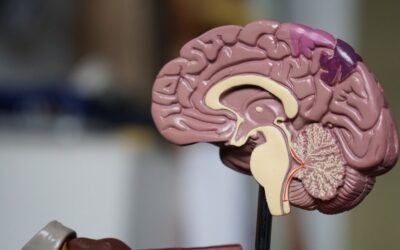Psychology is a wide-reaching field, covering everything from social attachments to disorders of the brain and nervous system (neurology). We’ve put together a list of ten Psychology books that we think every student should read. Whether you’re preparing to study at University, just starting to explore your interest, or looking to deepen your knowledge of psychology before attending our Oxford summer school, these books will provide valuable insights and enhance your learning journey.
1. The Man Who Mistook His Wife for a Hat and Other Clinical Tales – Oliver Sacks
In this classic book, Sacks documents a number of fascinating and strange cases that he came across in his work as a neurologist.
The book is named after one of these cases: the man who mistook his wife for a hat had visual agnosia. This is a condition where people are unable to interpret visual information so cannot recognise objects or faces. From this to a case about a patient who couldn’t recognise his own leg, Sacks deals with the most extraordinary conditions.
It is an engaging and easy to read book, which will make you appreciate that a lot can go wrong in our brains. Such explorations of the human mind are central to our psychology programme in our Oxford summer courses.
2. The Psychopath Test: A Journey through the Madness Industry – Jon Ronson
In The Psychopath Test, Ronson describes his quest to determine whether it is true that many high up CEOs and politicians are psychopaths.
He tells the story of his visits to psychopaths, as well as to the psychologists and psychiatrists who study them. The book also looks at how psychopaths are diagnosed and explores The Psychopath Test developed by Bob Hare.
Ronson offers intriguing insights into the minds of psychopaths, as well as some very interesting stories, making this book well worth a read.
3. Phantoms in the Brain: Probing the Mysteries of the Human Mind – V.S. Ramachandran and Sandra Blakeslee
Phantoms in the Brain is an engaging book which explores various neurological disorders, such as phantom limbs.
A phantom limb is a condition where amputees can feel their amputated limb after it is gone (and in some cases even feel pain in it which is very difficult to treat). The book describes the cause of this phenomenon, among many other conditions. The authors explain how these can inform our understanding of the brain and also present many interesting cases of patients with these conditions.
Reading this will give you an understanding of how the brain forms our perception of both the world and ourselves.
4. 50 Great Myths of Popular Psychology: Shattering Widespread Misconceptions About Human Behavior – Scott O. Lilienfeld, Steven Jay Lynn, John Ruscio & Barry Beyerstein
As the title suggests, this book dispels 50 popular misconceptions in psychology. These are claims that are not scientifically true but still continue to be spread by the general public.
The authors aim to show that common sense can actually mislead people. 50 Great Myths of Popular Psychology encourages us to think critically and evaluate these claims, rather than simply taking them to be true.
This is an interesting book, and definitely worth reading – most of us probably didn’t realise that many of these are misconceptions.
5. The Language Instinct: How the Mind Creates Language – Steven Pinker
Throughout this book, Pinker explores the idea that language is innate to humans, a phenomenon that he describes as ‘the language instinct’.
Pinker makes the case for language as an ability unique to humans: we evolved this to be able to communicate. The book explores many cases that support this idea that language and grammar are in-built (an idea that was first proposed by the linguist Noam Chomsky).
This is a perfect introduction to the psychology of language and linguistics. It is filled with intriguing cases and ideas that will give you a different perspective on how your brain works.
6. Predictably Irrational – Dan Ariely
In Predictably Irrational, Ariely, who is a behavioural economist, rejects the widely held belief that humans make rational decisions. Rather, he makes the case for the idea that we behave irrationally. For example, we will eat another plate at an unlimited buffet even though we are already full.
The book examines many factors which contribute to these behaviours: expectations, emotions, social norms, among other forces. It uncovers the irrational mistakes that we consistently make – mistakes that are predictable. Ariely also offers advice on breaking these behaviours.
Reading this will challenge what you think you know about your own behaviour, and help you to stop making the same irrational mistakes.
7. Thinking, Fast and Slow – Daniel Kahneman
Thinking, Fast and Slow is an entertaining description of the research that Kahneman has conducted over his career.
In it, Kahneman explores the relationship between two modes of thought that he proposes us to have. System 1 is impulsive, automatic and intuitive: this happens without our conscious thought. However, System 2 is thoughtful, deliberate and calculating. The book describes how the interactions between these systems determine how we think and act.
Kahneman has written an enjoyable summary of recent work in social and cognitive psychology – which will almost certainly make you think differently about how you think.
8. Bad Science – Ben Goldacre
This is not just a psychology book, but rather it is about science in general – specifically bad science, as the title suggests.
Bad Science implores readers to be aware of the poor understanding of scientific evidence and statistics in our society. For example, Goldacre explores how science reporting in the media tends to produce very untrue accounts of real research and data. He also describes how pharmaceutical companies misuse statistics for their own benefits, and how homeopathy tricks so many people into thinking it is a cure.
This book is both witty and easy to read – and will make you question everything you’ve ever been told is true.
9. The Invisible Gorilla – Christopher Chabris and Daniel Simons
The Invisible Gorilla describes how, when we are focused on one thing, we tend to overlook everything else.
The title of the book refers to earlier research in this area: when participants are told to count how many times players passed the ball in a basketball game, they do not even notice someone dressed as a gorilla walking through the game!
Chabris and Simmons do a good job of demonstrating that, really, we don’t notice as much as we think we do in this entertaining book.
10. Influence: Science and Practice – Robert Cialdini
Cialdini’s eye-opening book explores the topics of influence and persuasion. It teaches us both how to be more persuasive, and how to stop ourselves being persuaded to do things we don’t actually want to.
Cialdini explains that there are six psychological principles that drive us to comply to the influence of others, which he goes through in detail.
Influence is not only interesting, but will also help you to be more aware of the power of how you talk to people – even just in your everyday life.

By Rachel Delahay
Rachel is an undergraduate Psychology student at Lady Margaret Hall, Oxford, with a particular interest in perception. She believes that Psychology is an important science, as much of the human brain remains a mystery that we have yet to solve. She is excited to keep you up to date with the latest research in this field! In her spare time, she enjoys drawing, painting, and cooking all sorts of pasta dishes.




